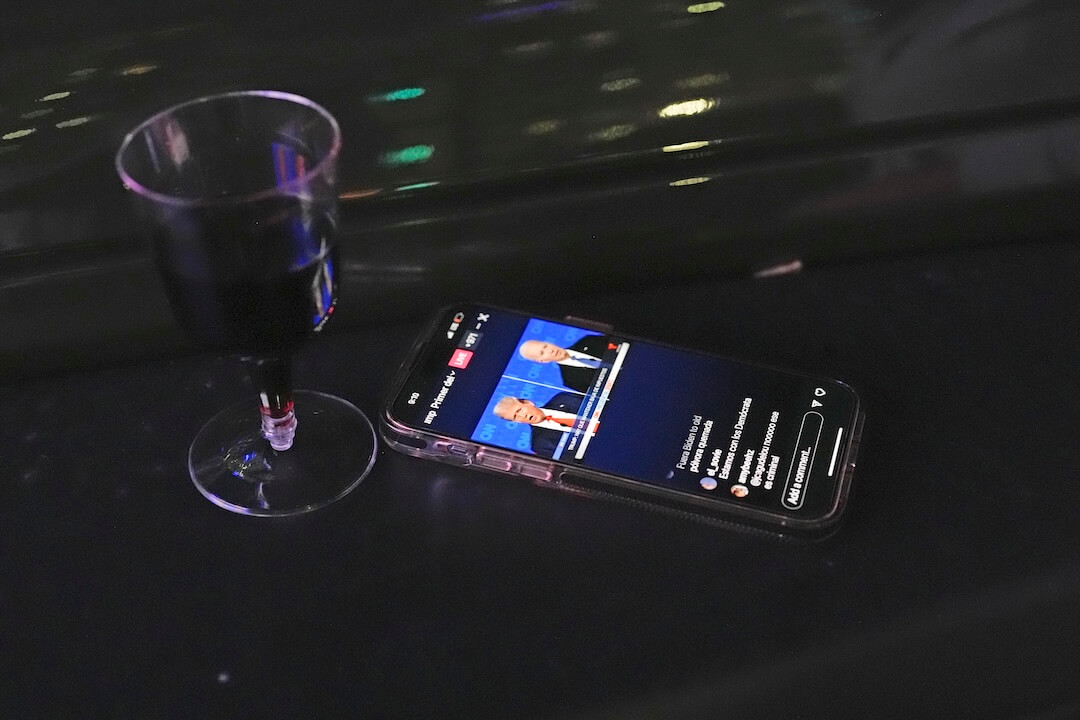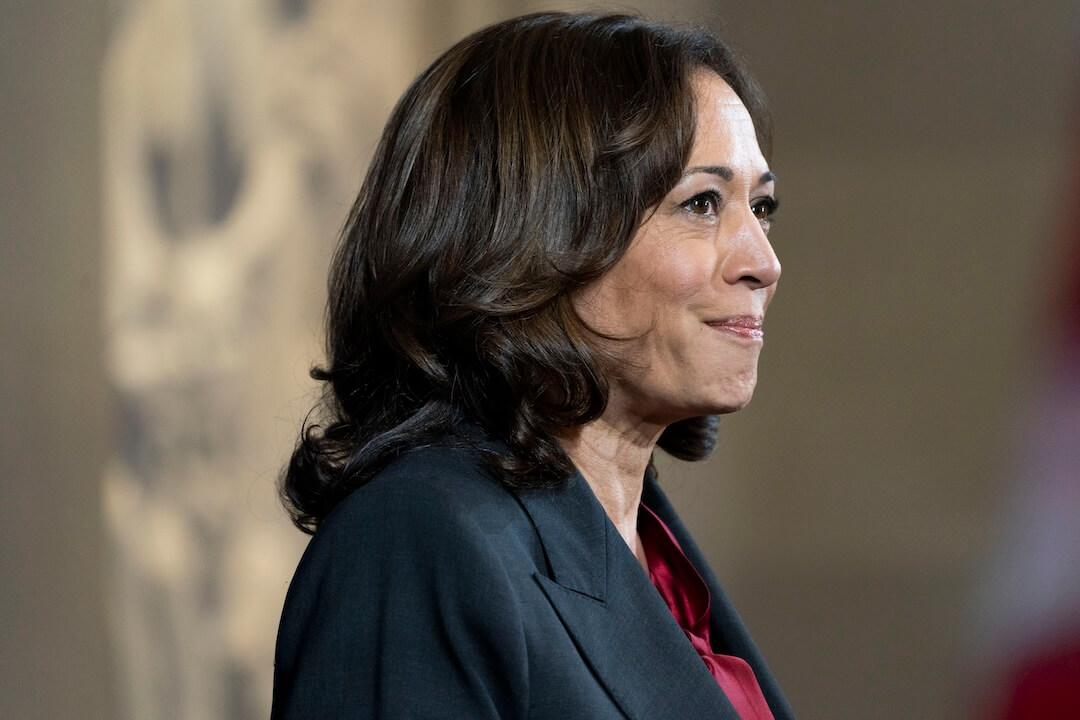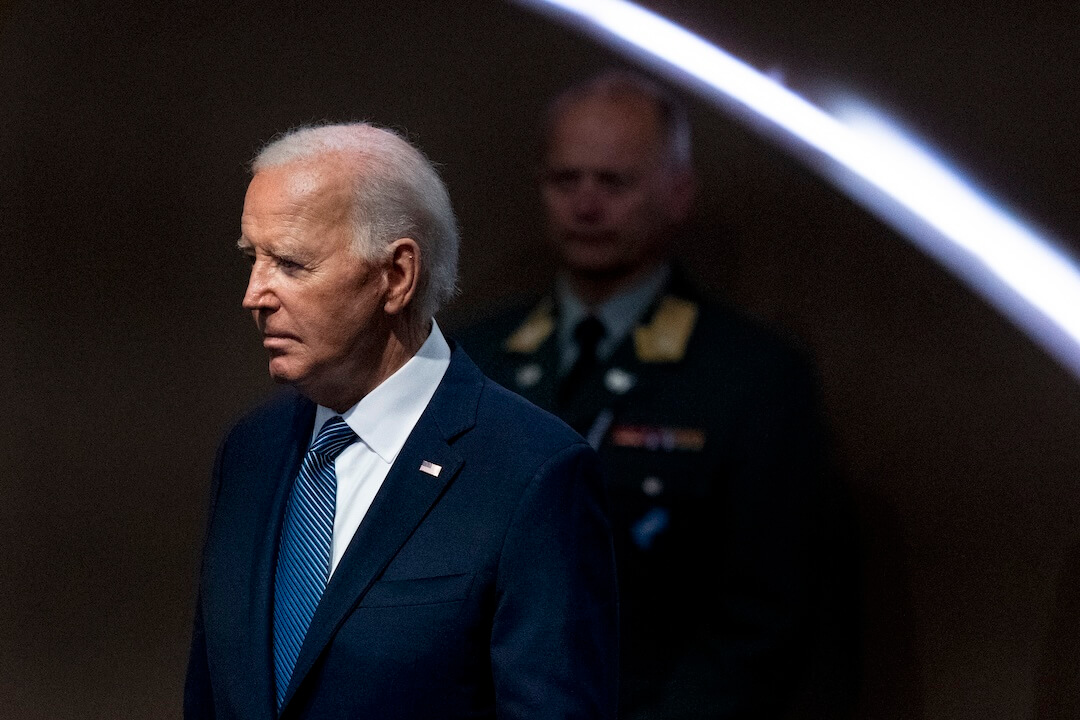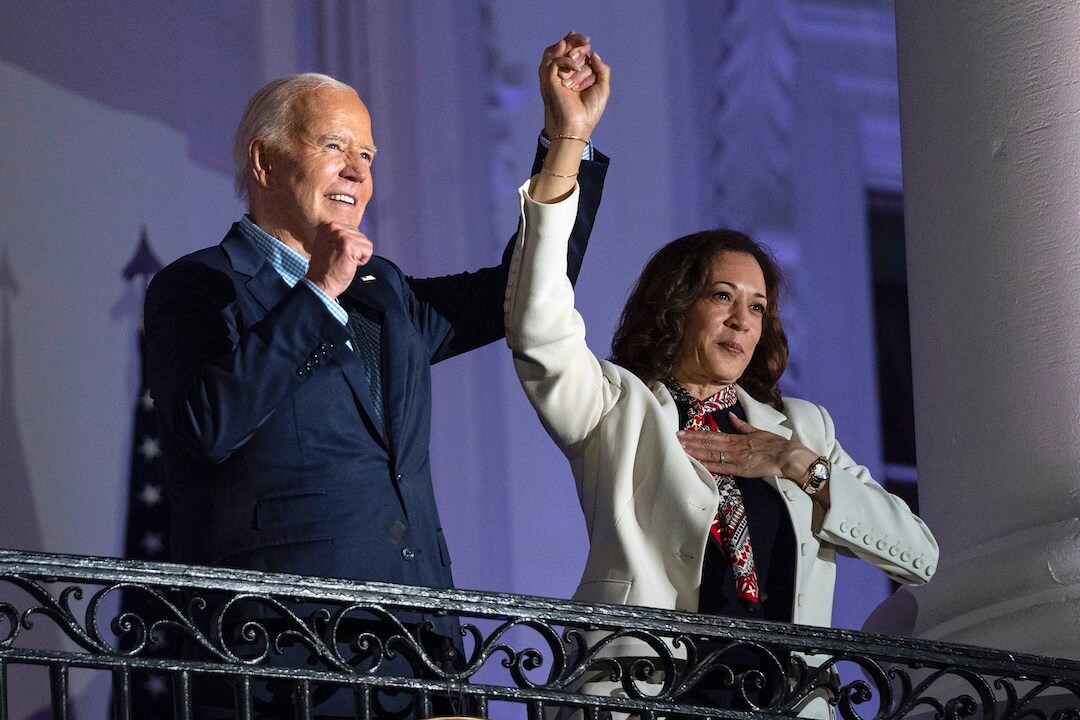The Democratic panic over President Joe Biden’s awful showing in the debate last week briefly blew back the curtain on the mostly opaque world of campaign coverage.
From the moment the debate concluded, journalist after journalist mentioned that their phones were flooded with text messages from sources. Without saying so, most of these sources were anonymous. Within 24 hours, journalists and pundits declared that the Democratic Party was in crisis and called for Biden to step aside.
In an era when journalists strive for transparency, campaign reporting, particularly presidential campaign reporting, has lagged behind. Reporters who cover party politics rely heavily on anonymous sources, often without noting so. This trend — on stark display post-debate — risks driving a wedge between journalists and the audience they aim to serve.
New York Times columnist Michelle Cottle said in a post-debate podcast: “At 10 minutes in, people had stopped listening to the details. I mean, my phone was blowing up with people panicking.”
NPR’s Mara Liasson said, “And I’ve never gotten such a stream of texts from heartbroken and panicked Democrats as I have tonight,” on the NPR Politics Podcast. (I’m the Public Editor for NPR. This column is about the broad trend in media, not something unique to public radio.)
“I will tell you that by the time you got to the first commercial break at the highest levels of the Democratic Party … there were conversations about what do we do now,” John Heilemann said on MSNBC’s “Morning Joe.”
Washington Post media reporter Jeremy Barr noted this trend on X. His colleague, White House bureau chief Toluse Olorunnipa, told me he noticed a number of journalists referring to the direct messages they received on their phones.
Anyone who’s been around journalists covering political campaigns knows there is a frequent exchange of off-the-record information via text messaging between sources and reporters. Much of it is initiated by sources, seeking to pass along tips, as well as get tips from the reporters, and otherwise influence the coverage of their candidates.
“The world of flying text messages is part of the process,” Olorunnipa said. “If you ignore that, you are ignoring a big part of the way political communication happens.”
He got a handful of texts himself. But because he was part of the Post’s team writing the story that would describe the debate itself, he was not able to engage. “I was locked in and on deadline. I couldn’t get involved in live discussions,” he said. “I wasn’t going to be using anything from my texts.”
‘Acting like therapists’
Other journalists and pundits, tasked with analyzing the debate, referenced their texts so many times I wondered if they were competing with each other to point out how well-sourced they were.
“I think political journalists have been long acting like therapists to the many Democrats who have been concerned about Biden,” said Bill Adair, the Knight Professor of Practice of Journalism and Public Policy at Duke University. “And like therapists, those conversations have been confidential. But last week, the patients decided to start talking openly about their anxieties.”
Some of them started talking openly. A few former Biden staffers-turned-TV-analysts suggested the president’s debate performance was concerning. His former communication director Kate Bedingfield called Biden’s performance disappointing. Jamie Metzl, who worked for Biden back when the president was a senator, said much the same. David Axelrod, former senior adviser to President Barack Obama, immediately said, “There are going to be discussions about whether he should continue.”
But far more sources stayed in the shadows of journalists’ text messages, showing up in stories only as vague references cloaked in anonymity.
This story from The Hill quotes four unnamed sources before getting to any named sources. This Washington Post story references a Democratic donor texting a face-palm emoji and another source texting the green vomit emoji.
The first direct quote from the New York Times’ Peter Baker was an anonymous Democratic strategist saying that Biden’s well of support had run dry.
Times columnist Nicholas Kristof mentioned his many text messages in his column on Friday calling for Biden to step aside.
All these anonymous sources are hardly surprising, Adair told me. A former political reporter himself, he explained that any well-sourced reporter will have texting relationships with elected politicians, party leaders and influential donors. And almost all of those relationships will be off the record.
“I doubt that most journalists have said, ‘When you text me that’s off the record,’” Adair said. “In political journalism there are assumptions, that assumption of off-the-record exists for anyone in a campaign except a campaign spokesperson.”
When Olorunnipa receives an unbidden text from a source, his first instinct is to reach out and clarify the source’s intentions. Sometimes they want the information kept off the record, meaning it won’t show up in a story, but more often they want it kept on background, meaning it won’t be attributed to them.
“If it looks like the person wants to shape the coverage or be quoted or cited, I ask to be sure that’s the case, that they want to be reflected in the coverage,” he said. “Sometimes they will say no fingerprints, that they don’t want to be cited by name.”
Why would Democrats text their concerns about Biden to journalists, I asked? It’s about long-term relationships, Olorunnipa said. Political sources seek to bolster their cachet with journalists.
“It’s important for (sources) to have credibility so that when (journalists) are writing a story, you know that you aren’t getting just spin. Even though they don’t want to be quoted straying from the company line,” he said. “Some of it is to bolster their views, making sure that their point of view is reflected in your coverage. But they also gain more credibility over time. If someone is only giving you talking points, you are less likely to consider them credible. But if they go outside of that, then you might be a little more willing to believe them in the future.”
What does the audience think?
How does this all look to news consumers? My daughter’s boyfriend, an avid news consumer, wanted to talk about the coverage over the weekend. How did all the journalists all get on the same page so quickly, he asked me Saturday morning, less than 36 hours after the debate ended. By then, even The New York Times editorial board had weighed in.
It looked like a bandwagon to him. I suspect he’s not the only audience member who felt a bit of whiplash. Sure the debate was bad, but how did so many people arrive at the same drastic conclusion that the Democratic Party should launch down a murky path they haven’t been down in more than 50 years?
Adair speculated that many of these anonymous sources had reservations about Biden long before last week’s debate. “The conversation has been going on, it has. There have been stories along the way in various publications,” he said.
Democratic voters have had concerns, too. In poll after poll they’ve cited reservations about the age of both candidates, but more of them are worried about Biden’s age. Is the chorus of columns and editorials calling for Biden to stand aside a reaction to the debate itself, or the text messages?
It’s impossible to tell. Campaign reporting is among the least transparent in American journalism. Consider that most newsrooms require their journalists to explain why they are attributing information to anonymous sources, yet no one who cited the barrage of text messages even bothered to acknowledge that they were anonymous sources.
I’m not advocating for shutting down these communications. Good reporting on any beat requires that reporters develop trusted sources who can explain the facts, get into the details and describe the power structure. The more sources a reporter has, the more accurate the reporting will be.
But it’s a black box for the audience. After the debate, journalist after journalist told the public that the party was in crisis, that there was a growing consensus that Biden needed to step aside and that the very future of democracy was at stake. And most of that reporting and commentary was rooted in anonymous sources.
In his post-debate podcast conversation with colleagues, New York Times columnist Ross Douthat pointed out, “Democrats are the party of the media and the intelligentsia. It’s pretty hard for a Democratic president to soldier on when he loses the media and the intelligentsia, no matter what his loyal staffers say.”
While he intended that commentary as a critique of the party, media conspiracy folks would use it as evidence that the mainstream press is being manipulated. While I don’t believe that, I do believe political reporters could be more transparent.
Explain the journey. How many text messages, exactly? What is the nature of these sources? Why are they texting you? Why are you citing this information, but not naming them?
For news to be useful, people need to understand how it’s made. The presidential election is arguably the most consequential news story, because it informs how people vote. Consumers deserve to see the fullest version possible of the evidence behind the analysis.






